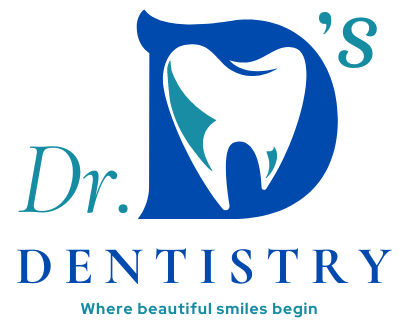Hormonal Changes During Pregnancy Affects Your Oral Health and What You Can Do About It is an exciting time, but it brings many changes to your body, including your oral health. While most people focus on the common physical changes like weight gain or morning sickness, oral health is often overlooked. However, it plays a significant role during pregnancy. Here’s how pregnancy can affect your oral health and what you can do to maintain a healthy smile during this crucial time.
Hormonal Changes and Their Impact on Oral Health
During pregnancy, your body experiences a surge in hormones, particularly estrogen and progesterone. These Hormonal Changes can affect your gums, making them more sensitive to plaque, which can lead to pregnancy gingivitis. Gingivitis is characterized by red, swollen, and bleeding gums, and it’s a common issue for pregnant women.
If left untreated, pregnancy gingivitis can lead to more severe gum disease, known as periodontitis, which has been linked to Hormonal Changes pregnancy complications, including preterm birth and low birth weight.
Increased Risk of Cavities
Hormonal Changes Pregnant women may be more susceptible to cavities for several reasons. Morning sickness and acid reflux can increase the acidity in your mouth, which weakens enamel and increases the risk of cavities. Additionally, changes in diet—especially cravings for sugary snacks—can contribute to tooth decay.
Dry Mouth
Dry mouth (xerostomia) is another common issue during pregnancy. It can lead to discomfort, difficulty in chewing, and a higher risk of infections like tooth decay or gum disease. Staying hydrated and chewing sugar-free gum can help stimulate saliva production and alleviate dry mouth symptoms.
Pregnancy Tumors
Some women develop benign growths on their gums called Hormonal Changes pregnancy tumors. These are not cancerous and usually disappear after giving birth, but they can be uncomfortable. Pregnancy tumors are often linked to excessive plaque buildup and can be minimized through good oral hygiene.
What You Can Do to Protect Your Oral Health During Hormonal Changes Pregnancy
Maintaining good oral hygiene is essential during pregnancy to protect both your health and your baby’s health. Here are some practical steps:
- Brush and Floss Regularly: Brush your teeth at least twice a day with fluoride toothpaste and floss daily to remove plaque and food particles.
- Visit Your Dentist: Schedule a dental check-up early in your pregnancy. Let your dentist know you’re pregnant, as they may adjust your treatment plan and avoid certain procedures or medications.
- Eat a Balanced Diet: Eating a diet rich in calcium, vitamin D, and phosphorus will help support strong teeth and bones. Limit sugary snacks and beverages to reduce your risk of cavities.
- Stay Hydrated: Drinking water can help alleviate dry mouth, rinse away bacteria, and neutralize acids in your mouth.
- Rinse Your Mouth After Morning Sickness: If you experience nausea and vomiting, rinse your mouth with a solution of water and baking soda to neutralize stomach acid and protect your enamel.
The Importance of Regular Dental Check-ups During Pregnancy
Seeing your dentist during pregnancy is crucial for maintaining optimal oral health. Many women avoid dental visits out of concern for their baby’s safety, but most routine dental treatments are safe during pregnancy, particularly in the second trimester. Here’s why regular check-ups are essential:
- Early Detection of Gum Disease: Gum disease can progress quickly during pregnancy due to hormonal changes. Regular dental exams allow your dentist to catch signs of gingivitis early before it develops into periodontitis.
- Preventing Tooth Decay: Dental check-ups help in the early identification and treatment of cavities, preventing further complications. A professional cleaning can also remove plaque and tartar that regular brushing may miss, reducing the risk of decay.
- Management of Oral Health Changes: If you develop pregnancy-related conditions like pregnancy tumors or experience excessive dry mouth, your dentist can recommend appropriate treatments to alleviate discomfort and protect your teeth.
- Safety First: Always inform your dentist if you’re pregnant. They can tailor treatments accordingly, avoiding certain medications and X-rays unless absolutely necessary. Dental X-rays are generally avoided during pregnancy unless it’s an emergency, but modern safety measures like lead aprons minimize any potential risks to your baby.
Addressing Common Misconceptions
There are several misconceptions surrounding dental care during pregnancy. Let’s clear up some of the most common myths:
- Myth 1: Dental treatments are unsafe during pregnancy.
- Fact: Most dental treatments are safe during pregnancy, especially preventive care like cleanings. Consult your dentist to determine which procedures are appropriate, and avoid postponing important treatments.
- Myth 2: Morning sickness means you should avoid brushing your teeth.
- Fact: Brushing after vomiting may feel uncomfortable, but it’s essential to protect your enamel. However, avoid brushing immediately after; instead, rinse your mouth first to neutralize the acids and wait about 30 minutes before brushing.
- Myth 3: Calcium is taken from your teeth to support the baby’s growth.
- Fact: Your baby gets the calcium they need from your diet, not your teeth. If your calcium intake is insufficient, your body will draw calcium from your bones, not your teeth, so maintaining a nutrient-rich diet is key.
Oral Health and Its Connection to Overall Hormonal Changes Pregnancy Health
Research has shown that your oral health is connected to the health of your pregnancy. Periodontal disease has been linked to various pregnancy complications, including:
- Preterm Birth: Studies suggest that severe gum disease may increase the risk of delivering a baby prematurely.
- Low Birth Weight: Untreated periodontal disease can contribute to low birth weight, which can result in developmental issues for your baby.
- Preeclampsia: Some research indicates a link between poor oral health and preeclampsia, a condition characterized by high blood pressure during pregnancy.
While more research is needed to fully understand the connection, maintaining good oral health can play an important role in promoting a healthy pregnancy and reducing potential risks.
Hormonal Changes Post-Pregnancy Oral Health

After you give birth, your oral health remains a priority. The hormonal changes and oral health issues you may have faced during pregnancy don’t disappear immediately. Here’s how to take care of your teeth and gums post-pregnancy:
- Schedule a Postpartum Dental Visit: Once you’ve settled into your routine with your new baby, visit your dentist for a check-up to address any lingering oral health issues.
- Continue Good Oral Hygiene Practices: Keep brushing and flossing regularly to prevent plaque buildup and protect your teeth from decay.
- Watch for Signs of Gum Disease: Hormonal fluctuations continue post-pregnancy, and some women may experience lingering gum sensitivity or inflammation. If your gums are still swollen or bleeding, consult your dentist for guidance.
- Stay Hydrated: Continue drinking plenty of water to combat dry mouth and maintain saliva production, which helps protect your teeth.
Final Thoughts
Pregnancy is a transformative time, and taking care of your oral health is essential for both your well-being and the health of your baby. By practicing good oral hygiene, visiting your dentist regularly, and being mindful of the changes in your mouth, you can reduce the risk of gum disease, cavities, and other dental issues. This will not only protect your smile but also contribute to a healthier, more comfortable pregnancy and postpartum experience.
Remember, a healthy mouth is a key part of a healthy body, and your efforts to maintain your dental health during pregnancy will pay off in the long run—for both you and your baby!


